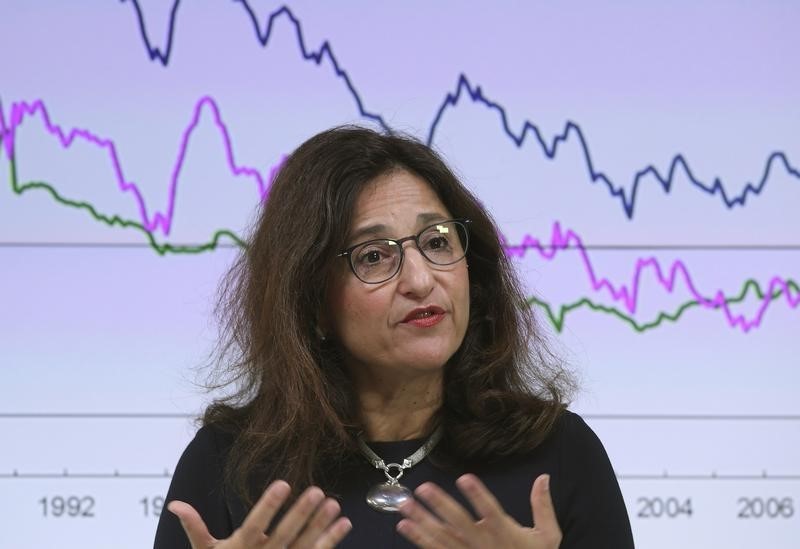By Andy Bruce
OXFORD, England (Reuters) - Economic experts, maligned in an age of populist movements and fake news, must come clean when they are uncertain about the future if they are to regain the trust of the public, Bank of England Deputy Governor Minouche Shafik said on Wednesday.
Her comments reflect a bout of soul-searching among BoE policymakers, who have been criticised by Brexit supporters for warning that a vote to leave the European Union could lead to a sharp slowdown - something that has not yet materialised.
Shafik said confidence in experts was at an all-time low.
A widespread failure to predict the 2007-09 financial crisis had been compounded by banking scandals, culminating in open scepticism towards experts ahead of last June's vote to leave the European Union, she said.
"Rather than pretending to be certain and risk frequently getting it wrong, being candid about uncertainty will over the long term build the credibility of experts," Shafik said in a speech to students at the Oxford Union debating society.
Her colleague, Monetary Policy Committee member Gertjan Vlieghe, made newspaper headlines this week when he told lawmakers that the BoE was unlikely to be able to forecast the next financial crisis or recession.
And BoE Chief Economist Andy Haldane has compared the economics profession's troubles with meteorologists' failure to predict a major storm in 1987, which unexpectedly tore through the south of England.
Shafik also suggested that Britain's economic think tanks and media should adopt standards of transparency and scrutiny practised by academic institutions to help rebuild trust.
"For example, should think tanks have to report transparently about where their funding comes from? Should journalists and bloggers be exposed for reporting or recirculating falsehoods or rumours?" she asked.

Wednesday's speech was billed as Shafik's last as a BoE official. She is due to step down at the end of the month to head up the London School of Economics.